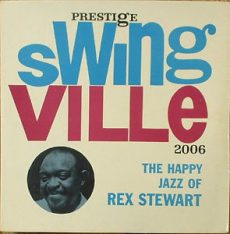
Daily Dose Of Jazz…
Jerome Darr was born on December 21, 1910 in Baltimore, Maryland. His first major professional affiliation was a jug band, the Washboard Serenaders. As a member of this group from 1933 through 1936, the guitarist enjoyed a well-received European tour.
During the 1940s he focused on work as a studio musician showing up on sessions from blues to bebop. His incredibly versatile and prolific career had him playing behind Frankie Lymon & The Teenagers.
Between 1935 and 1973 Jerome participated in roughly twenty jazz recording sessions. in total for this artist. Such a thin statistic indicates that the hefty, complete list of recordings Darr appears on include many other styles besides jazz.
He recorded and/or performed with the Marlowe Morris Trio, Paul Quinichette All-Stars and his Quartet, Rex Stewartand the Charlie Parker Quintet. In his final years, Darr was mostly swinging in the busy band of trumpeter Jonah Jones, in a sense coming full circle with the type of playing he had started out with.
Guitarist Jerome Darr died October 29, 1986 in Brooklyn, New York.
More Posts: guitar,history,instrumental,jazz,music
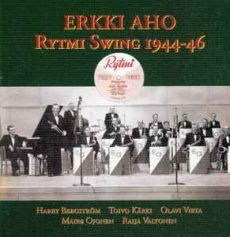
Daily Dose Of Jazz…
Erkki Vilhelm Aho was born December 10, 1918 in Helsinki, Finland. He led the Rytmi orchestra which was formed in 1938. In the orchestra, Olavi Virta and Raija Valtonen acted as soloists, the pianist was Toivo Kärki and another famous member was Pauli Granfelt.
Aho’s orchestra was one of the top Finnish orchestras. During the Continuation War, his orchestra consisted of 14 men before it was taken over in 1945 by drummer Osmo “Ossi” Aalto. In the spring of 1944, the orchestra recorded American evergreens arranged by Kärjen Syväri.
Trombonist, trumpeter and conductor Erkki Aho died on August 19, 2002.
More Posts: bandleader,conductor,history,instrumental,jazz,music,trombone,trumpet
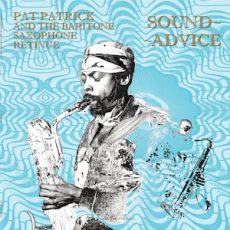
Daily Dose Of Jazz…
Pat Patrick was born Laurdine Kenneth Patrick Jr. on November 23, 1929 in East Moline, Illinois, to Laverne and Laurdine Kenneth Patrick. He first learned piano, drums, and trumpet as a child, and then switched to saxophones. He attended and studied music at DuSable High School in Chicago, Illinois where he met fellow students and future musicians bassist Richard Davis and saxophonists John Gilmore and Clifford Jordan. While still in school he was baritone saxophonist for the Regal Theater’s house band.
1949 saw Pat enrolled at Florida Agricultural and Mechanical University, but soon returned to Chicago to study at Wilson Junior College. Around 1950 he first played in one of Sun Ra’s bands as part of a trio and occasionally in Sun Ra’s Arkestra. By 1954 he became a regular member of the band. He moved to New York City in 1961, spent several years in the Arkestra’s communal residences in the East Village and Philadelphia, Pennsylvania.
He went on to play and record with John Coltrane, Blue Mitchell, Mongo Santamaría, Thelonious Monk, and Babatunde Olatunji. In 1972, Patrick co-founded the Baritone Saxophone Retinue, which featured Charles Davis and recorded two albums for Saturn Records.
He toured Europe with Sun Ra in 1970 and 1976, and was part of some other Arkestra performances in that decade, but he also devoted time to teaching at the State University of New York at Old Westbury.>
Baritone and alto saxophonist, bassist, flutist, percussionist and composer Pat Patrick, who is known for his 40-year association with Sun Ra, died from leukemia in Moline on December 31, 1991.
More Posts: bandleader,bass,composer,flute,history,instrumental,jazz,music,percussion,saxophone
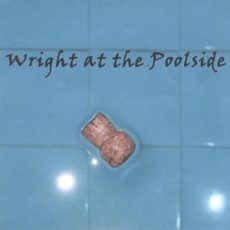
Daily Dose Of Jazz…
Anthony K. Wright was born October 9, 1959 in London, England and began playing brass at school, before moving to clarinet at the age of 12, and later picked up the tenor saxophone. Turning professional in the early 1980s he played as a session musician and ran various rock bands in night clubs and on the gig circuit in London and South Wales. He maintained his interest in the clarinet, and in the early Nineties began playing jazz on the West Country ciecuit, whilst teaching Performing Arts at North Devon College.
Moving to Surrey late in the decade he is now widely known as a reeds teacher, with students ranging from adult beginners to advanced Grade 8 and Diploma-level specialists. His forte is improvisational jazz. leads a cool jazz band, Anthony’s AllStars, which features both clarinet and saxophone. He also plays with Riverside Shuffle Band and Vic Cracknell’s Swing Band, and other local bands.’
Tenor saxophonist Anthony Wright continues to perform and spends much of his time composing, arranging and creating his own recordings of what he has labeled intelligent pop..
Get a dose of the musicians and vocalists who were members of a global society integral in the making and preservation of jazz for over a hundred and twenty-five years…
More Posts: bandleader,clarinet,history,instrumental,jazz,music,saxophone
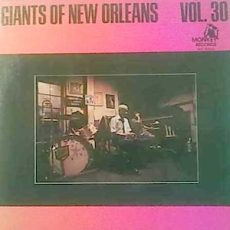
Daily Dose Of Jazz…
Jerome Don Pasquall was born on September 20, 1902 in Fulton, Kentucky, and grew up in St. Louis, Missouri. As a child, he played the mellophone in brass bands. He served in the United States Army in 1918 in the 10th Cavalry Band, and picked up clarinet during this time.
Following his discharge, Pasquall played with Ed Allen in 1919 and then found work on riverboats playing with Charlie Creath and Fate Marable. He moved to Chicago, Illinois to study at the American Conservatory, and played with Doc Cook’s Dreamland Orchestra as a tenor saxophonist.
Departing for Boston, Massachusetts he attended the New England Conservatory of Music. In 1927 and 1928, he played with Fletcher Henderson. Following this he returned to Chicago and led his own ensemble, in addition to playing with Freddie Keppard, Dave Peyton, Jabbo Smith, Tiny Parham, and Fess Williams.
He toured Europe with the 1934 Blackbirds, Eddie South, Henderson again in 1936, and Noble Sissle from 1937 throught World War II in 1944. After the mid-1940s, he did freelance work in New York City with Tony Ambrose among others, and gradually receded from active performance.
Clarinetist, alto saxophonist, mellophonist Jerome Don Pasquall, who never led his own recording session, dies on October 18, 1971 in New York City, New York.
More Posts: bandleader,clarinet,history,instrumental,jazz,mellophone,music,saxophone




